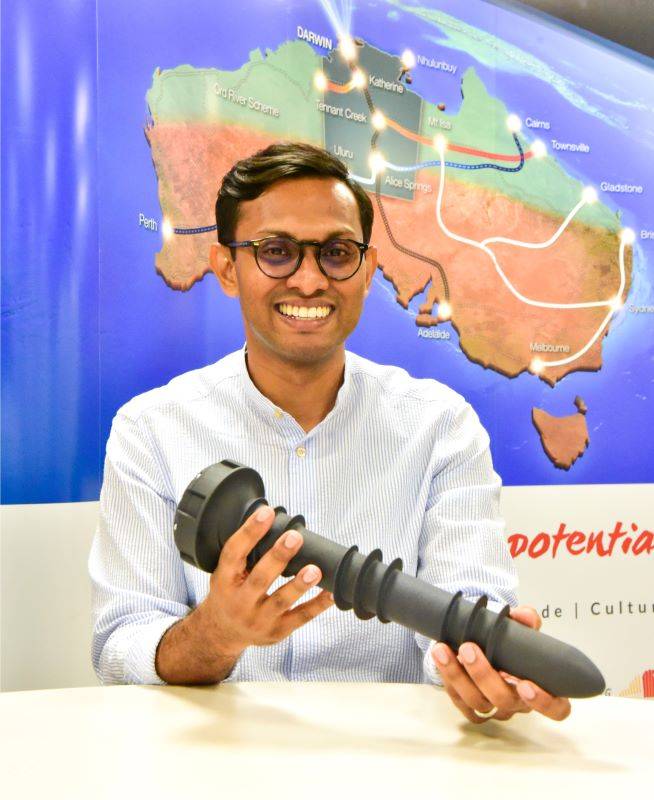Digital partnership turns Darwin-based company Mycor into a game changer with its super smart water sensor system technology.
The management and optimisation of urban tree water use is one of the country’s biggest challenges.
Up here in the Territory, Darwin-based company Mycor has come up with an innovative smart water sensor system which not only saves huge amounts of water and time but hundreds of thousands of dollars.
Thanks to a grant from the Northern Territory Government’s Digital Partnerships Program Mycor were able to broaden the perimeters of their original project and shoot for the moon.
“Apart from the obvious benefits of financial assistance, the grant gave us legitimacy which meant we could attract interest from overseas partners and suppliers who had the IT expertise we needed,” said Project Manager Kamal Ali.
“We had already gathered a lot of information about producing an optimum watering schedule for plants and trees in an urban environment but we were looking for the BlueReef technology, IT software and hardware experience to assist us in this task.”
Working with the Minnesota-based engineering firm, Lab 651, Mycor built an in-house predictive smart water sensor to minimise urban tree water use.
“By creating a sensor system that measures water predictively we could considerably reduce the cost of watering trees while ensuring they are healthy as they can be,” said Mr Ali.
“The grant not only allowed us to think outside the box but it gave the team the space to come up with an innovation we can further develop and manufacture right here in the Territory, creating jobs for the future and maintaining them.”
Another benefit of partnering with Lab 651, who are experts in the fields of hardware, software and applications, was creating a custom-built sensor that costs considerably less than what is on already on the market.
“Our sensor was built from the ground up and that is what makes it different and cost effective.”
Many smart water sensors cost around $1,400 each, plus subscription to online data.
Alternatively, Mycor’s predictive smart water sensor prototype, which look like large plastic screws, ranges between $70 to $100, plus subscription fees.
To put this in perspective Mr Ali outlined how if current market-priced sensors had been used for the 4,000 street trees planted by the City of Darwin last year, the bill would have come to $5.6 million. In comparison, the bill for Mycor’s custom-built smart water sensor would have been $280,000.
“That’s a huge saving,” he said. “Furthermore, a council, institution, business or government agency would recoup the original cost of our sensors after the first year by only watering when needed and dramatically reducing the cost of watering.”
Mycor was set up by parent company Sterling NT. “Sterling NT plants a lot of street trees - and that is when we started working on the optimal amount of water a tree in an urban environment needs to thrive - that is what we are now all about with Mycor,” said Mr Ali, who is also director at Sterling NT.
“The government grant crystallised our thinking. It helped us create a robust business plan and Mycor became a very different business as we worked on creating a game-changing digital sensing solution.”
Like all innovations there were setbacks. The COVID-19 crisis meant the microchip they originally used could no longer be distributed and the team had to go back to the drawing board.
However, with version 2 ready for trial at the Darwin Waterfront at the end of November, Mycor, which has its field teams based in Darwin, is looking to extend out to other tree watering programs in the Territory and to export around Australia.
“The City of Brisbane and the City of Sydney have already shown great interest in what we’re doing, and we’re even thinking to extend overseas,” said Mr Ali.
“The grant gave us a confidence and a levity which have provided knock-on benefits far greater than the original money provided.”

